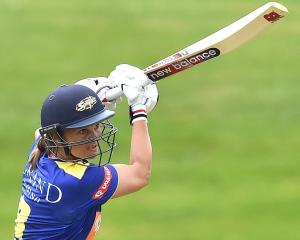
What the likes of Phillip Hughes, Peter Siddle and Andrew McDonald helped achieve in a 2-1 series win in South Africa in March has convinced the selectors to give them a chance to defend the Ashes.
Chief selector Andrew Hilditch unveiled a 16-man squad on Wednesday for the five-test series in England, saying Siddle, McDonald and Co. had been rewarded with their first Ashes trips.
Skipper Ricky Ponting was among only five survivors of the team that lost the Ashes in England in 2005.
Ponting took the rap for being the first Australian captain to lose the Ashes since Allan Border's team regained them in England - against all odds - in 1989.
An emphatic 5-0 triumph in Australia to regain the old urn went some way to making amends in 2006-07, but that hasn't quite satisfied Ponting.
"I don't think we are going to have any of the hangover from 2005," he said. "We rectified things and redeemed ourselves exceptionally quickly when they turned up in Australia."
In January, Ponting was the first Australian captain in 16 years to lose a test series on home soil, dropping the first two tests against South Africa. That came in the wake of a test series loss in India late in 2008.
It seemed then Australian cricket was in disarray, but there were a few signs of recovery with a win in the third test against South Africa to reduce the margin to 2-1.
A young and relatively untried combination went to South Africa and won the first two tests to keep the Proteas from overhauling Australia at the top of the test rankings.
That rectified a few issues for Ponting's lineup and restored some confidence in Australian cricket. Now, it's on to the Ashes.
"We have got some great memories of an Ashes series (in 2006-07) and playing against a side that is going to be fairly similar to the one we come up against in a few months time," Ponting said.
But while the England squad might appear familiar, Ponting's lineup has undergone massive change since '06-07.
Unlike the established squad that left Australia four years ago as favorites to retain the Ashes, half this squad has played fewer than eight test matches.
More than half have never played an Ashes test, including strike bowler Mitchell Johnson, and Australia still is yet to settle on a long-term spinning option in the post-Shane Warne era. Nathan Hauritz, with four test caps, is the specialist spinner for this trip.
Warne, the leading leg-spinner of all time, was part of the exodus from the Australian team after it reclaimed the Ashes on home soil.
Glenn McGrath - who took more test wickets than any fast bowler - and wicketkeeper Adam Gilchrist retired after Australia won the World Cup in 2007.
Justin Langer and Matthew Hayden, one of the best opening combinations ever in tests, have also retired.
The nucleus of the batting order, with Simon Katich opening, Ponting at No. 3, followed by his vice-captain Michael Clarke and Mike Hussey, all have good Ashes credentials.
Joining them is Hughes, the precocious 20-year-old lefthander who replaced Hayden this year and settled quickly into test cricket in South Africa. He became the youngest batsman ever to score hundreds in each innings of a test match - in his second test.
A quick sojourn with Middlesex netted four centuries and invaluable experience in the English conditions, something which Ponting predicts England will regret - even if he half-jokes about Hughes scoring too many runs before the series.
McDonald, the lanky redheaded allrounder who won his first three tests against South Africa, held onto his place ahead of the more flamboyant and experienced Andrew Symonds.
With so many young players, Australian selectors couldn't risk any kind of destabilizing influence and Symonds' record of off-field problems likely counted against him.
Marcus North scored a century on debut in South Africa and can operate competently as an orthodox spinner, and injury-plagued Shane Watson were also picked in the squad instead of Symonds.
Watson got the nod - subject to fitness - for his ability to bat anywhere in the order and because his extra pace lends support to the fast bowlers.
Brett Lee, the most experienced of the pacemen, was considered lucky to make the squad, given his limited preparation. He is the only surviving bowler from the '05 series and was Australia's best fast bowler in those conditions.
Yet neither he nor Stuart Clark, the second most-capped bowler in the squad with 22 tests, is guaranteed to unseat Siddle or Ben Hilfenhaus as Johnson's fast bowling partners.
Both Lee and Clark are returning from injuries which let the likes of Siddle and Hilfenhaus get their test opportunities.
As Ponting sees it, the tough times before the series win in South Africa has set his team on a better course for England.
"We've been in a transitional phase ... for the past 12 months but I think we've worked our way through that particularly well," Ponting said. "I've got no doubt that whichever way we decide to go (with selection) that we're going to be ultra-competitive."
Squad: Ricky Ponting (captain), Michael Clarke (vice-captain), Simon Katich, Phillip Hughes, Michael Hussey, Brad Haddin, Marcus North, Shane Watson, Andrew McDonald Mitchell Johnson, Peter Siddle, Brett Lee, Stuart Clark, Ben Hilfenhaus, Nathan Hauritz, Graham Manou.












